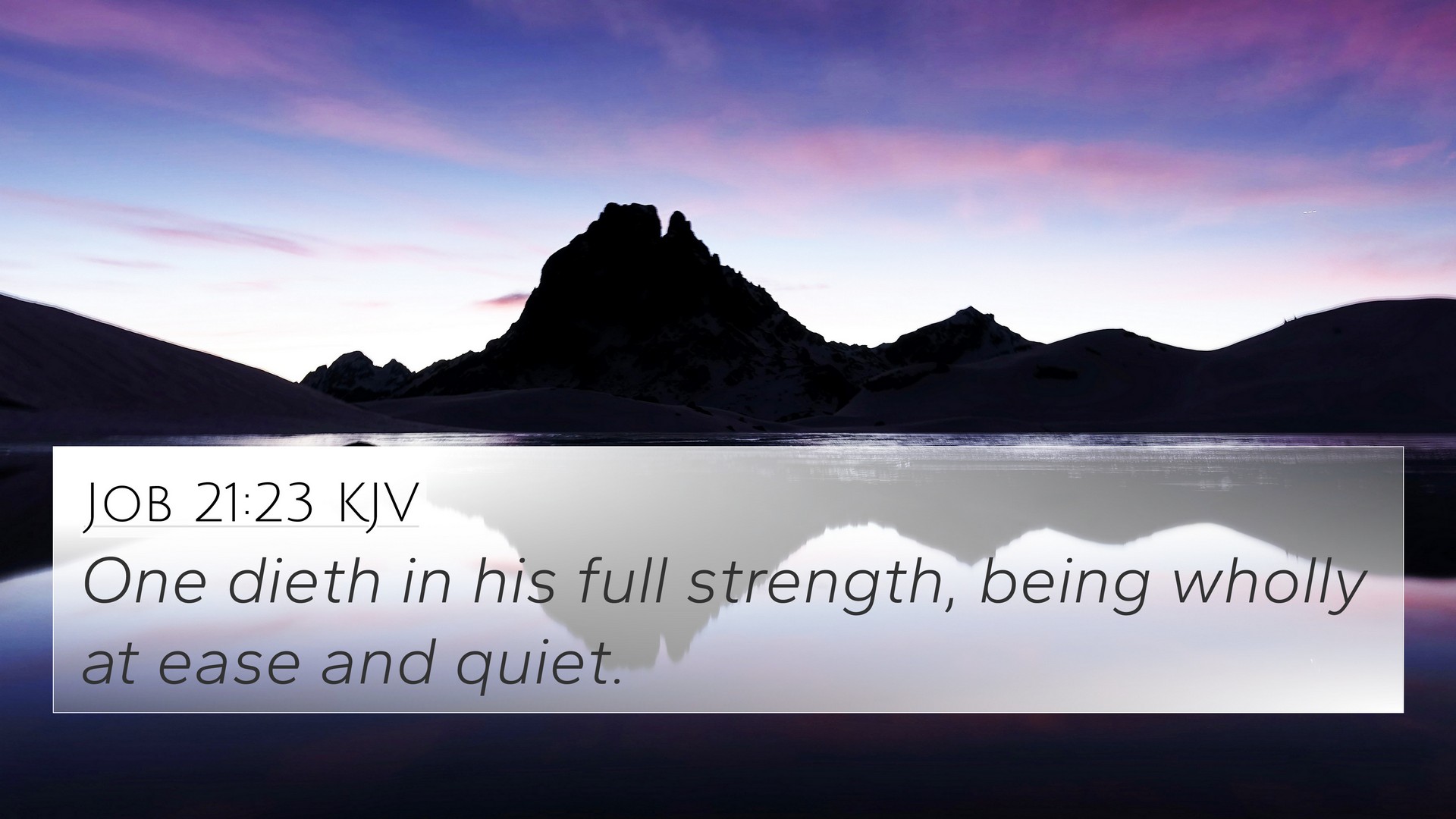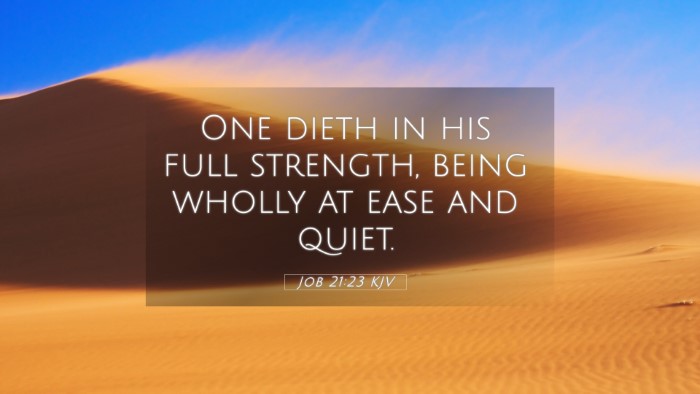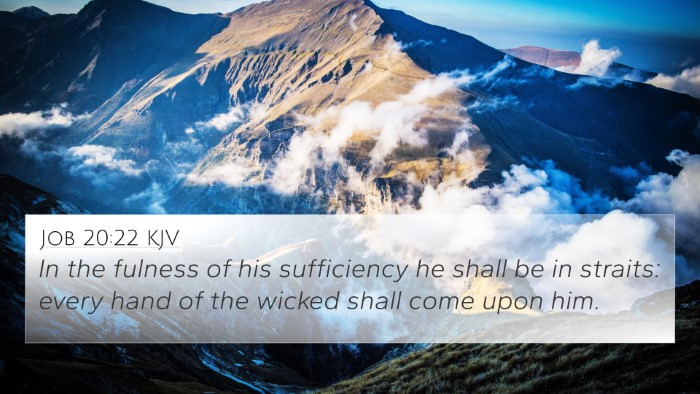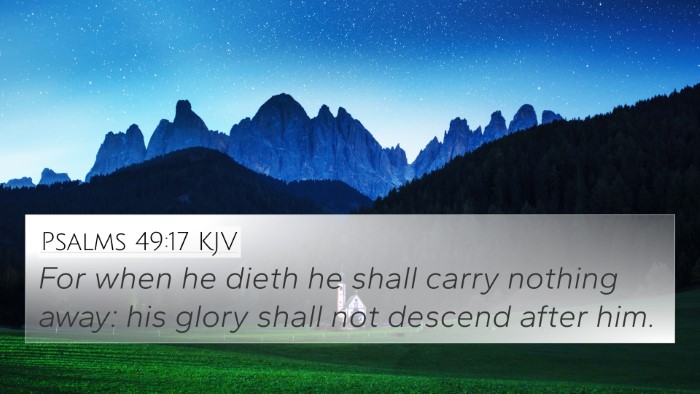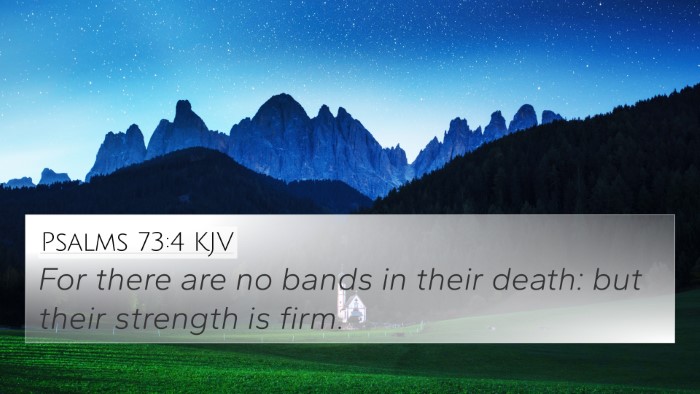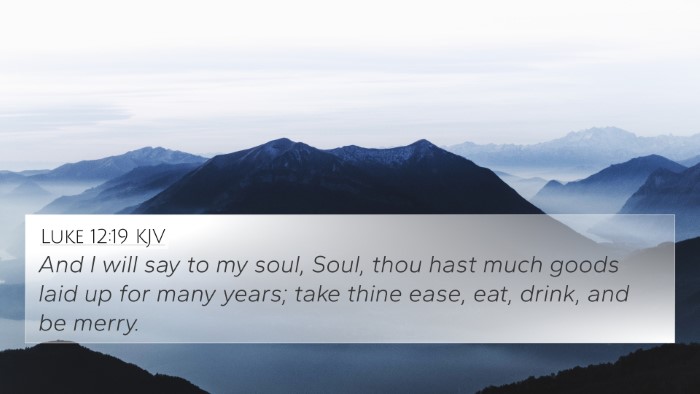Understanding Job 21:23
Job 21:23 presents a profound insight into the contrasting fates of individuals: "One dies in full vigor, completely secure and at ease." This verse highlights a central theme in the Book of Job: the seeming prosperity of the wicked and the question of divine justice.
Summary of Insights
The verse draws attention to the experience of different individuals at the end of their lives. Job asserts that it is not always the righteous who meet a peaceful end, nor is it always the wicked who suffer. This contradiction in life experiences raises questions about the relationship between righteousness, suffering, and divine justice.
Commentary Insights
-
Matthew Henry:
Henry explains that Job uses this observation to argue against the conventional wisdom that the wicked always face immediate punishment. He emphasizes that external circumstances do not reflect one’s standing before God, suggesting that life's outcomes can often defy worldly logic.
-
Albert Barnes:
Barnes elaborates on the idea that despite the outward appearances of prosperity for the wicked, inner turmoil and guilt may accompany them. He suggests that Job is not denying the existence of divine justice but rather exposing the limits of human understanding about it.
-
Adam Clarke:
Clarke views this verse in the context of the broader discourse on suffering. He points out that Job’s life was marred by profound suffering, thus prompting him to point out that others can thrive despite their lack of righteousness. Clarke invites readers to contemplate the complexities of God’s justice and mercy.
Bible Cross-References
This verse connects with several others, shedding light on the themes of justice and the human experience:
- Psalm 73:3-5: This passage reflects the psalmist’s struggle with similar observations about the prosperity of the wicked.
- Ecclesiastes 7:15: Here, the author of Ecclesiastes expresses confusion over the fate of the righteous versus the wicked.
- Malachi 3:15: This verse comments on the apparent rewards of the wicked, bringing forth questions about God’s justice.
- Luke 16:25: In this parable, Jesus emphasizes the reversal of fortunes in the afterlife, contrary to earthly experiences.
- Romans 9:14: Paul poses a rhetorical question concerning God’s fairness, aligning with Job’s deliberation on divine justice.
- Proverbs 11:21: This proverb ultimately reassures that the wicked will not go unpunished, contrasting the experiences Job presents.
- Job 12:6: This verse echoes the idea that the prosperity of the wicked might be a temporary state.
Thematic Connections
Job 21:23 touches upon several key biblical themes:
- The Problem of Evil: How can a just God allow suffering and the success of the unrighteous?
- Divine Justice: Relating one's earthly experience to divine justice and the afterlife.
- The Nature of Prosperity: Understanding what it means to prosper and how societal definitions can differ from scriptural interpretations.
Conclusion
Job 21:23 encapsulates a vital aspect of the human experience—grappling with the dichotomy between righteousness and suffering. Insights from public domain commentaries provide greater depth, emphasizing the need for a nuanced understanding of divine justice. As we explore cross-references, we see the rich inter-Biblical dialogue that offers a greater theological context to Job's lament.
Tools for Further Study
For those seeking to dive deeper into comparative Bible verse analysis, using a Bible concordance or a Bible cross-reference guide can greatly enhance your study. Utilizing tools and resources can help in identifying connections between Bible verses, leading to a richer understanding of scripture.
